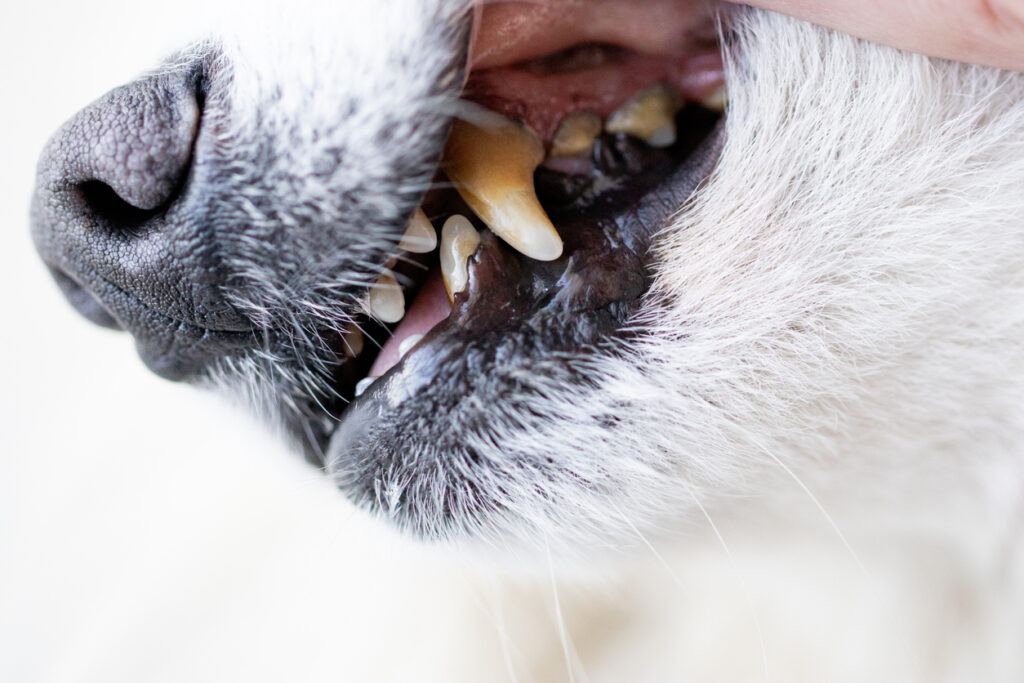Dog Periodontal Disease: What You Should Know
What is dog periodontal disease? Is there any way to prevent your dog from developing this type of disease? What can you do to treat your dog if she already has it?
In the article below, we’ll answer all these questions and much more. With the help of this information, you should be able to better understand what periodontal disease may mean for your dog and what to expect from this type of diagnosis in your pet as well.
What is periodontal disease in dogs?
Periodontal disease is typically referred to as “gum disease” in more common language. However, it can also include problems with the teeth and cheeks as well as the tongue in some instances, so “gum disease” is a bit of a misnomer.
Many dogs over three years of age develop some type of dental health disease. For this reason, it is always important to keep up with your dog’s dental care.
Symptoms of Periodontal Disease in Dogs
Periodontal disease in dogs is characterized by a range of symptoms, including bad breath, swollen or bleeding gums, difficulty chewing or loss of appetite, loose teeth, and even visible tartar or plaque buildup on the teeth.
Bleeding gums
Bleeding and inflamed gums occur in every stage of dental disease. If your dog’s gums are very sensitive and tend to bleed frequently, or if she has very bloody saliva without a known reason, then she may have dental disease that needs to be treated.
Loose teeth
Loose teeth occur when the gums begin to pull back away from the teeth. This is caused by unhealthy gums, and it can create pockets of infection around the bottom of the affected teeth as well. This condition is painful and can lead to serious secondary infections, so it needs to be treated as soon as possible.
Tooth decay
Tooth decay occurs when periodontal disease has been going on for a long while already. If your dog is to the point that her teeth are actively decaying, she needs to see a vet for professional dental care immediately. Broken and chipped teeth as well as loose or missing teeth may also be earlier, related indicators of this problem.
Bad breath
Although bad breath on its own may not indicate dental disease, it is typically one of the first symptoms many pet owners notice in their dogs.

Treatments for Periodontal Disease in Dogs
Periodontal disease in dogs can be treated with a variety of methods, including professional dental cleaning, antibiotics, and home care such as regular teeth brushing and dental chews. In severe cases, surgery may be necessary to remove damaged teeth or repair gum tissue.
Professional cleaning
Professional dental cleanings from the vet can go a long way toward ensuring your dog’s gums and teeth remain healthy throughout the rest of her life. Even if her teeth are in very poor condition already, a cleaning can help improve her gum and tooth health.
Scaling
Scaling is a process that involves deep cleaning around the teeth to remove plaque and tartar buildup. It is painful and will require anesthesia, but it can help prevent worsening of dental disease in your dog.
Antibiotics
If your dog has an infection in her mouth already, she will likely need to go on a round of antibiotics to take care of it. She may also need steroids, depending on how bad the inflammation in her mouth already is. Your vet will give you more information about potential treatments.
Removal of decayed teeth
If your dog has decayed or rotting teeth already, these need to be removed so her mouth can heal. She cannot continue recovering from her condition with teeth that are rotting, so she will need to be anesthetized and will need to have her affected teeth pulled.
Prevention of Periodontal Disease in Dogs
Prevention of dog periodontal disease can be achieved through regular dental care, including brushing their teeth, providing appropriate chew toys, and feeding a healthy diet. It is also important to schedule regular veterinary checkups to catch any dental issues early on.
Regular cleaning
You can prevent or significantly reduce the risk of periodontal disease in your dog by having her teeth cleaned professionally once per year. If your dog is already predisposed to frequent dental infections, she may need cleaning twice a year; however, most vets do not recommend this, as teeth cleaning is invasive for dogs.
Regular teeth brushing
You can also help your dog’s dental health by brushing her teeth every week at home. You may need to work slowly with her to encourage her to let you touch her teeth, but with time, you should be able to brush her teeth effectively.
Feeding a healthy diet
Feeding a healthy diet to dogs can help prevent dental disease by providing them with essential nutrients that promote good oral health, such as calcium and vitamin D. Additionally, some types of dog food are specially formulated to clean teeth and reduce plaque buildup. A balanced and nutritious diet can also help to maintain a healthy immune system, which is essential for fighting off infections that can lead to dental disease.
Conclusion
By paying close attention to your dog’s dental health from an early age, you can prevent or significantly reduce her risk of developing periodontal disease. Keep in mind that there are many factors at play with this type of diagnosis, and it is up to you and your vet to keep an eye on your dog’s dental health.
Work with a trusted, professional vet to keep your dog’s teeth clean and her gums in good condition. The more you focus on your pet’s mouth hygiene and health needs, the more likely she will be to avoid the risk of periodontal disease later in life.
Our animal hospital treats Dog Periodontal Disease in Fort Lauderdale, FL. Contact Park Veterinary Hospital today at (954) 561-8387, or Request an Appointment Online.





